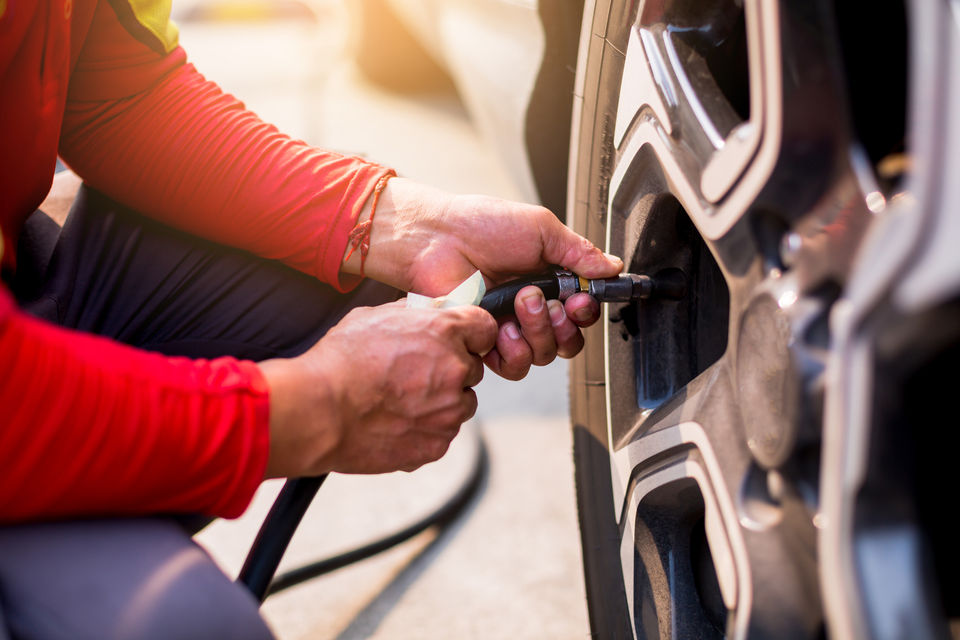
Nitrogen Tyre Inflation - Why Do It? Pros & Cons?
Thinking of inflating your tyres with nitrogen instead of compressed air?
Will it be more beneficial for your vehicle or not?
Let’s explore what nitrogen inflation is, the reason behind its usage, and the pros and cons of adopting this method.
What Is Nitrogen Tyre Inflation?
Nitrogen tyre inflation is a process where pure nitrogen gas is used to fill the tyres of vehicles instead of regular compressed air, which contains a mix of gases.
Nitrogen is commonly used in various industries, including aviation and motorsports, due to its unique properties. In recent years, it has gained popularity in the automotive sector as well.
Why Use Nitrogen in Tyres
Nitrogen is an inert gas, meaning it does not react with other substances. In contrast, compressed air contains oxygen and moisture in addition to nitrogen.
Oxygen can lead to rubber degradation over time, while moisture can cause corrosion. Nitrogen, being dry and non-reactive, does not have such detrimental effects.
Therefore, filling tyres with nitrogen has become an appealing choice for many vehicle owners.
Advantages of Nitrogen Tyre Inflation
Longer Tyre Life
Tyres filled with nitrogen tend to last longer than those filled with compressed air.
The inert nature of nitrogen prevents chemical reactions that can break down the rubber over time. This leads to improved durability and extended tyre life.
Less Frequent Reinflating
Being a larger molecule than oxygen, nitrogen doesn’t escape through the rubber compounds as quickly as oxygen, which means that your tyres won’t deflate as quickly.
Improved Fuel Economy
Nitrogen tyres maintain their inflation pressure more consistently than compressed air tyres.
Consistent pressure means less rolling resistance, which in turn enhances fuel efficiency. By using nitrogen, you can potentially save money on fuel costs in the long run.
Better Handling
Nitrogen-filled tyres are less sensitive to temperature changes.
As a result, they provide more consistent handling, especially during extreme weather conditions. Whether it’s a scorching summer day or a freezing winter night, you can count on nitrogen tyres to deliver stable performance.
Reduced Corrosion
Due to its dry nature, nitrogen does not encourage corrosion in metal components.
This is particularly beneficial for protecting vital parts of your vehicle, such as the wheels and brake rotors. Nitrogen tyre inflation can extend the life of these components and reduce maintenance costs.
Disadvantages of Nitrogen Tyre Inflation
Cost
Compared to compressed air, nitrogen filling is typically more expensive. The additional expense comes from the process of extracting nitrogen and removing impurities (ie. oxygen, moisture and other trace elements) to ensure a higher purity level.
Availability
Most service stations do not offer nitrogen tyre inflation. Finding a nearby facility that provides this service might be challenging, depending on your location.
Leaks
While nitrogen-filled tyres experience slower leakage compared to compressed air-filled tyres, they can still lose pressure over time.
Conclusion
The benefits of nitrogen tyre inflation extend across different vehicle types, making it a viable option for all.
For those seeking improved tyre longevity and better fuel economy, nitrogen tyre inflation can be worth the additional cost.

Louis
I'm Louis, an engineer passionate about helping Australians choose better tyres for their vehicles!
